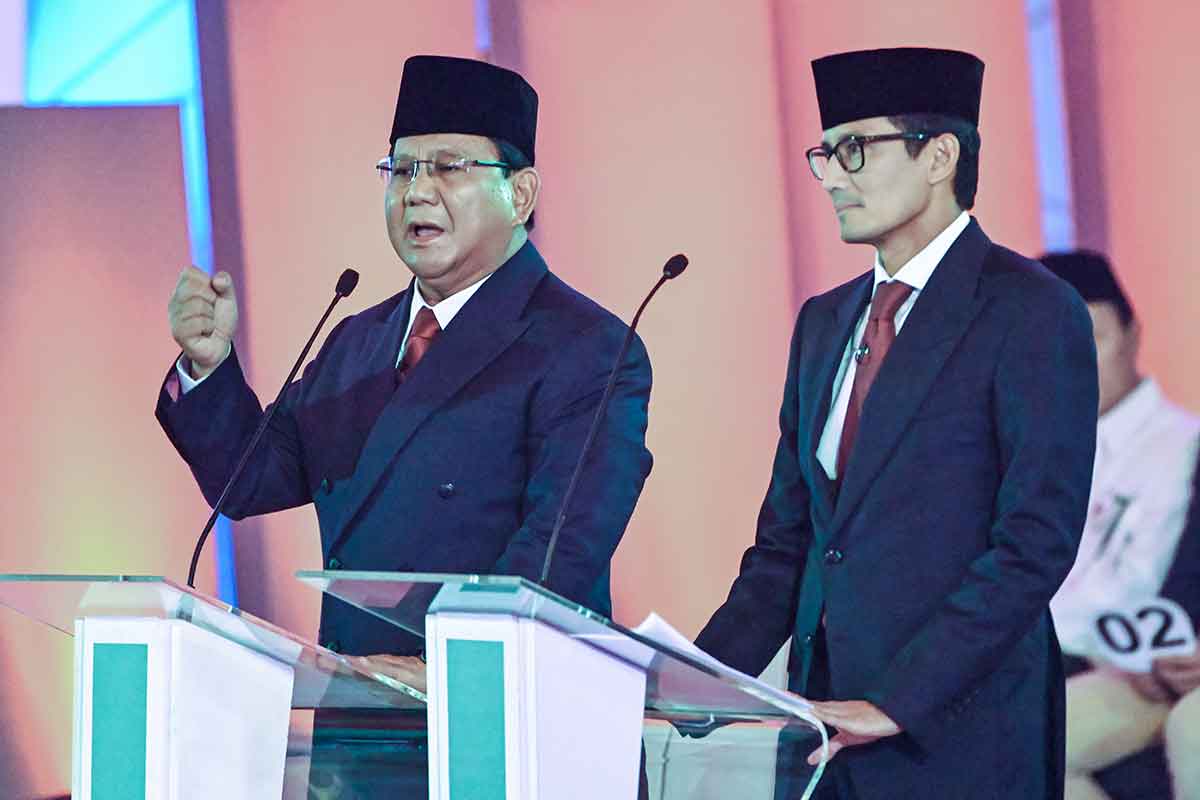When it was announced last year that the upcoming Indonesian presidential elections would be a rematch between Joko Widodo and Prabowo Subianto, there have been endless analyses over Indonesia’s identity politics. The usual narrative was that Jokowi represented a more liberal approach to Islam while Prabowo was more conservative, and that issues surrounding religion could be the deciding factor of the elections.
The focus on religion and identity politics has definitely shaped Indonesian politics. Many argue that Jokowi’s decision to choose 75-year-old conservative cleric Ma’ruf Amin as his running mate was to court the conservative base that Prabowo supposedly held.
While there is some truth to the narrative, the focus on such issues are often sensational and tends to obscure much larger issues that are of importance to Indonesians.
One major topic that does not dominate the headlines as much is the economy. For the past year, Indonesia’s economy has faced many challenges including a slump in global demand and a series of interest-rate hikes as well as fallout from the United States (US)-China trade war.
While its economy managed to remarkably navigate last year’s stormy weather, it is not all rosy in 2019. Youth unemployment in Indonesia is a major issue. According to data from the World Bank, youth unemployment for last year was recorded at 15.8 percent, an increase from last year’s 15.3 percent. Corruption is another problem that has long plagued the Indonesian economy and politics.
The economy under Jokowi
When Jokowi was elected President of the republic, there were high expectations that he would steer the country to economic success. Those expectations did not come from nowhere. In his run up to the 2014 elections, Jokowi had promised ambitious economic targets, including a seven percent gross domestic product (GDP) growth rate. While Jokowi failed to meet the promise with the Indonesian economy hovering around five percent growth throughout his presidency, economists argue that Jokowi’s initial promise may have been too ambitious and the slowdown could be due to factors beyond his control.
 Sources: Various
Sources: Various
In other aspects, Jokowi has managed to surpass expectations. In the four years of his presidency, Jokowi created over 10 million new jobs, surpassing his pledge of two million new jobs annually. The government has further announced that it is committed to creating two million new jobs this year as well.
Another focus of Jokowi’s has been upgrading the country’s infrastructure to improve connectivity across the 17,000 islands that make up Indonesia. For the past four years, investments of more than US$300 billion have been poured into massive infrastructure projects.
There are some worries though with regards to Jokowi’s excessive spending. Some are concerned about the ballooning government debt and the widening gap in the current account which could affect the rupiah. In addition to that, concerns of youth unemployment and the rising cost of living have yet to be properly addressed by Jokowi.
Prabowo’s economic nationalism
Considering Prabowo’s conservative politics as well as his military background, it is not surprising that he has adopted a nationalist approach to the economy. In unveiling his vision of a “Victorious Indonesia”, Prabowo pledged a populist economic approach with the aim of creating jobs, improving purchasing power and promoting industrialisation.
Prabowo’s camp has also criticised Jokowi’s infrastructure plans. “The people can’t eat those infrastructures, right? They eat rice, staple foods and others that are getting expensive while people’s buying power has dropped,” said Fadli Zon, Prabowo’s campaign advisor to local reporters.
Jokowi’s dealings with China is also another issue Prabowo has used to attack the President and to rouse nationalist sentiment. Jokowi’s infrastructure plans with China are often seen as being extravagant and a contributor to the country’s increasing debt by Prabowo and his supporters. Irwan Ronodipuro, director of foreign affairs for the Prabowo campaign has said that Prabowo would “seek a better deal” with China and push for bilateral talks if he became President.
While Prabowo’s populist promises may seem enticing, a closer look into his economic plans reveal that they lack credible economic policies. Jokowi has to be mindful though, as there are legitimate concerns of a depreciating rupiah, rising living costs and youth unemployment. If not addressed swiftly these issues could cost him dearly.
Related articles:
Indonesia’s disenchanted youth
Indonesian elections: Conservatism versus moderation
Why did Jokowi pick cleric Ma’ruf Amin?
